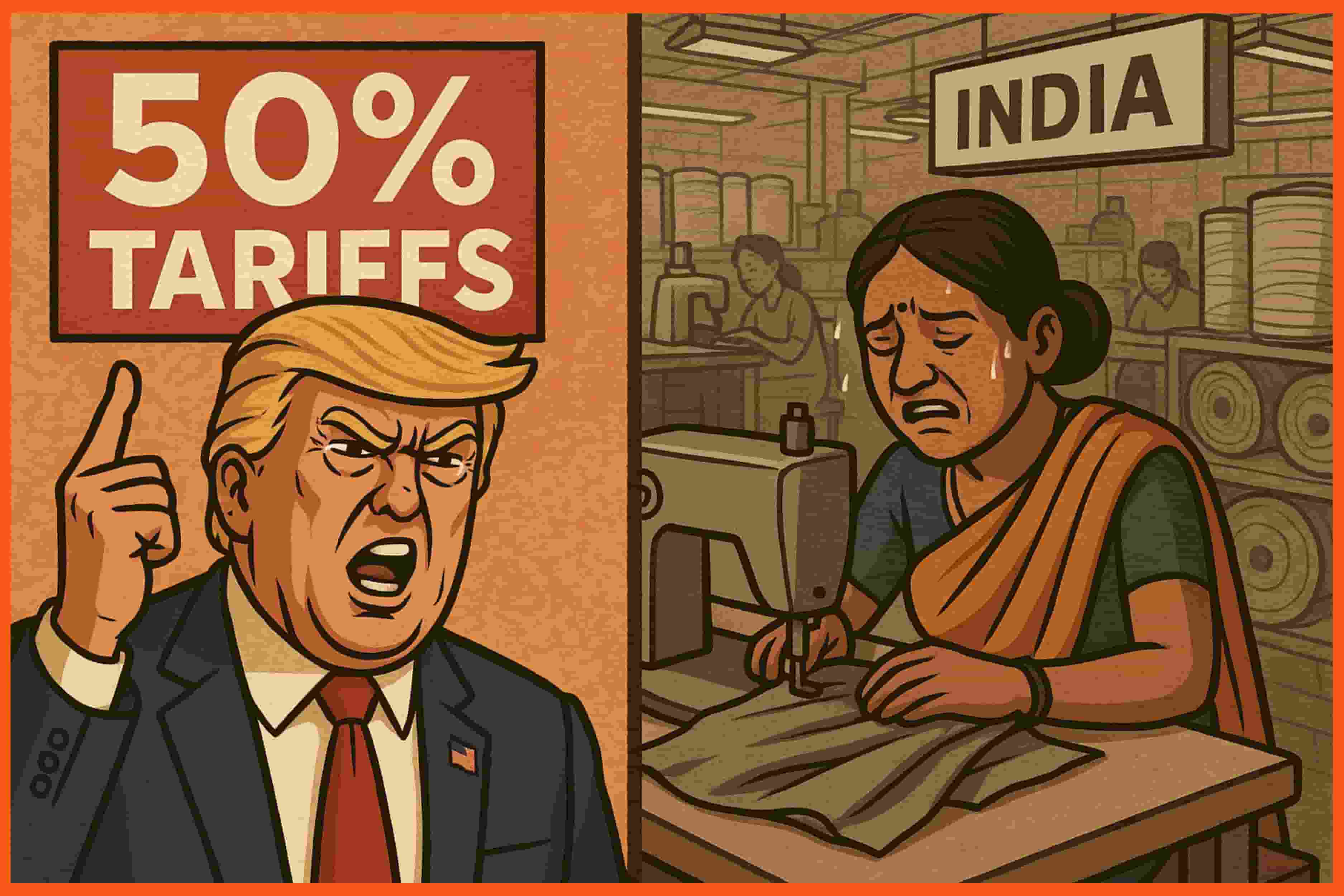In a surprise announcement on 25 September, U.S. President Donald Trump said his administration will slap a 100% tariff on branded and patented medicines imported into the United States from 1 October.
He made it clear that only drug makers already building plants on U.S. soil would escape the new duties. The message was blunt: “Make it here, or pay the price.”
Alongside the drug tariffs, Trump also unveiled fresh duties on other products: 50% on kitchen cabinets and bathroom vanities, 30% on upholstered furniture and 25% on heavy trucks, signalling a wider push to “reshore” manufacturing.
Who’s in the Firing Line?
The new policy primarily targets countries that ship high‑value, branded medicines into the U.S. — Ireland, Switzerland, Germany and India among them.
While Indian pharmaceutical companies have built their reputation on low‑cost generics, some of them also export branded generics and complex therapies to the American market. These products may now fall under the 100% tariff, depending on how U.S. customs classify them.
Why This Matters to India
India supplies about 40% of all generic drugs sold in the U.S. and is often called the “pharmacy of the world”. Generic medicines are not covered by the new tariff, so the bulk of India’s exports are technically safe for now.
But the uncertainty has already rattled the markets. On 26 September, the Nifty Pharma index fell over 2%, with Sun Pharmaceutical, Dr. Reddy’s and Cipla all sliding in morning trade. Investors fear the policy could be broadened or interpreted in ways that hurt Indian exporters.
Officials in New Delhi say they are “monitoring the matter closely”. According to reports in the Times of India, concerned ministries are mapping which Indian exports could be hit and whether WTO rules or trade agreements offer any relief.
Trump’s Reasoning
Trump has pitched the tariffs as a national security measure to rebuild U.S. manufacturing and reduce reliance on overseas suppliers. The White House says COVID‑era shortages and rising tensions with China highlighted the risks of importing critical medicines.
By doubling the cost of imported branded drugs, the administration hopes to push multinationals to break ground on U.S. plants, a requirement for exemption from the tariff.
How the World Is Reacting
Trading partners have expressed alarm. European officials point to agreements that cap pharmaceutical tariffs at 15% and hint at possible challenges under trade law. Indian business groups are urging the government to engage Washington before the rules take effect.
Market watchers also warn U.S. consumers could end up paying more for life‑saving medicines if supply chains shift too abruptly.
What Happens Next
For Indian drug makers, the immediate impact may be muted because of their generic‑heavy portfolios. But there are three looming risks:
- Branded generics and biosimilars may still be caught in the net.
- Retaliatory tariffs from affected countries could escalate the trade dispute.
- Supply chain disruptions may hit companies that rely on cross‑border ingredients.
Some Indian firms already operate U.S. manufacturing plants, which could give them a head start in avoiding the tariff. Others are weighing whether to invest in America or pivot to other export markets.
The Bigger Picture
This latest move underlines how trade policy is reshaping the global pharmaceutical business. For India, the world’s leading generic drug producer, the stakes are high.
If the tariff stays limited to branded drugs, the damage may be minimal. But if the definition widens or other countries follow suit, India’s $25‑billion drug export industry could face a painful reset.


Leave a Reply